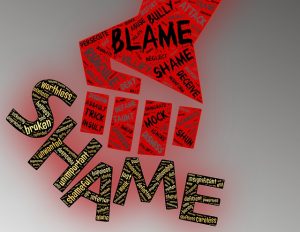
Children need a safe and secure home free of violence, and parents that love and protect them. – Unicef, Behind Closed Doors (2006)
Legal aid is available to UK victims of domestic violence if they have evidence. Many women won’t have evidence— I didn’t. But a lack of evidence is not proof that your making false allegations. A lack of evidence could mean that there’s been no physical violence.
What is domestic violence?
Domestic violence is any incident or pattern of incidents of controlling, coercive, threatening behaviour, violence or abuse…The abuse can encompass, but is not limited to: psychological, financial, physical, emotional & sexual. – www.gov.uk
In 2015, a coercive or controlling behaviour offence came into force in Britain. If found guilty, the offence comes with a maximum of five years in prison. Women no longer have to suffer in silence or shame. Mind games, verbal cruelty, intimidation and threats— it’s all domestic violence.
In court, I actually struggled to explain myself properly. I didn’t know that the explanation I was looking for was domestic violence. I went into my hearing an emotional, anxious mess. But, I finally spoke up and told the magistrates everything that had happened to me in the relationship. They understood my distress but the case was about my child, not me.
Domestic violence and your child…
The court’s interest is solely with the child at the centre of the case. Think about how your child been affected by the domestic violence that you’ve suffered. 
Children at any age are affected by domestic violence and abuse. At no age will they be unaffected by what is happening, even when they are in the womb. – Royal College of Psychiatrists March 2017
It is, undoubtedly, a traumatic experience for a child to see one of their parents abusing, controlling or physically attacking the other. A child can develop post-traumatic stress disorder at any age as a result of domestic violence in the home. A child can relive the domestic abuse they’ve witnessed through flashbacks and nightmares. They can become over-anxious and jumpy, have headaches or develop physical pains.
It’s thought that girls and boys will have different reactions to domestic violence in the home. Boys will tend to express their distress outwardly by becoming increasingly disobedient and aggressive. Older boys may skip school or use drugs and alcohol to block out the painful experiences. Girls often keep their distress inside, becoming withdrawn and depressed. Girls are more likely to develop an eating disorder and as they get older, harm themselves or take overdoses. As adults, both boys and girls are more likely to be in abusive and violent relationships themselves.
For more information of the effects of domestic violence on children:
http://www.rcpsych.ac.uk/healthadvice/parentsandyoungpeople/parentscarers/domesticviolence.aspx
https://www.ovc.gov/publications/factshts/pdftxt/monograph.pdf
https://www.unicef.org/media/files/BehindClosedDoors.pdf
http://www.custodyprepformoms.org/haca.htm
Every example of domestic violence that you give, must centre on the affect it has had on your child. I was consumed by emotion at my hearing and it became impossible for me to think clearly, though I tried. Preparation is key if you want to get your message across to the magistrates.
Domestic violence and you…

How the domestic violence makes you feel and act will have direct and indirect effects on your child. Therefore, when explaining how you feel, do so in terms of the affect it has on your child. For example, it could be that…“My son has witnessed my confidence shattered by my ex’s constant criticism of me and my abilities as a mother. I believe that under the current contact arrangement, my son’s respect for me lessens with every visit and he often insults me with same words he has heard his father use. Therefore, I propose…”
Or for another example, it may be that…“My daughter will no longer sleep in her own room because she is scared something will happen to me. I do not want my daughter to grow up thinking it’s normal to cry yourself to sleep every night. Nor do I want her to grow up being scared of men the way I am scared of her father. I propose that…”
In court, your feelings matter only in the way that they affect your child. This means that the words you use to describe your case are more important that ever. Ernest Hemingway said that the first draft of anything is shit, and he couldn’t be more right. It takes 4-10 drafts for me to publish a post on this site. It took me more than 10 drafts to send in my first statement to the court. Take the time to write and re-write your statements and what you will say in court.
Remember, the most important thing is to keep yourself and your children safe. Domestic violence and abuse is a crime, so don’t hold back from involving the police. – Royal College of Psychiatrists, Domestic Violence – It’s effects of children.
Help another mother at family court…
What effect has domestic violence in the home had on your child?
Amazing things can happen when women support each other. Help another mother at family court by leaving your comments below. #mothers4justice2
For writing help read Syd Field’s help to write your statement for family court.
